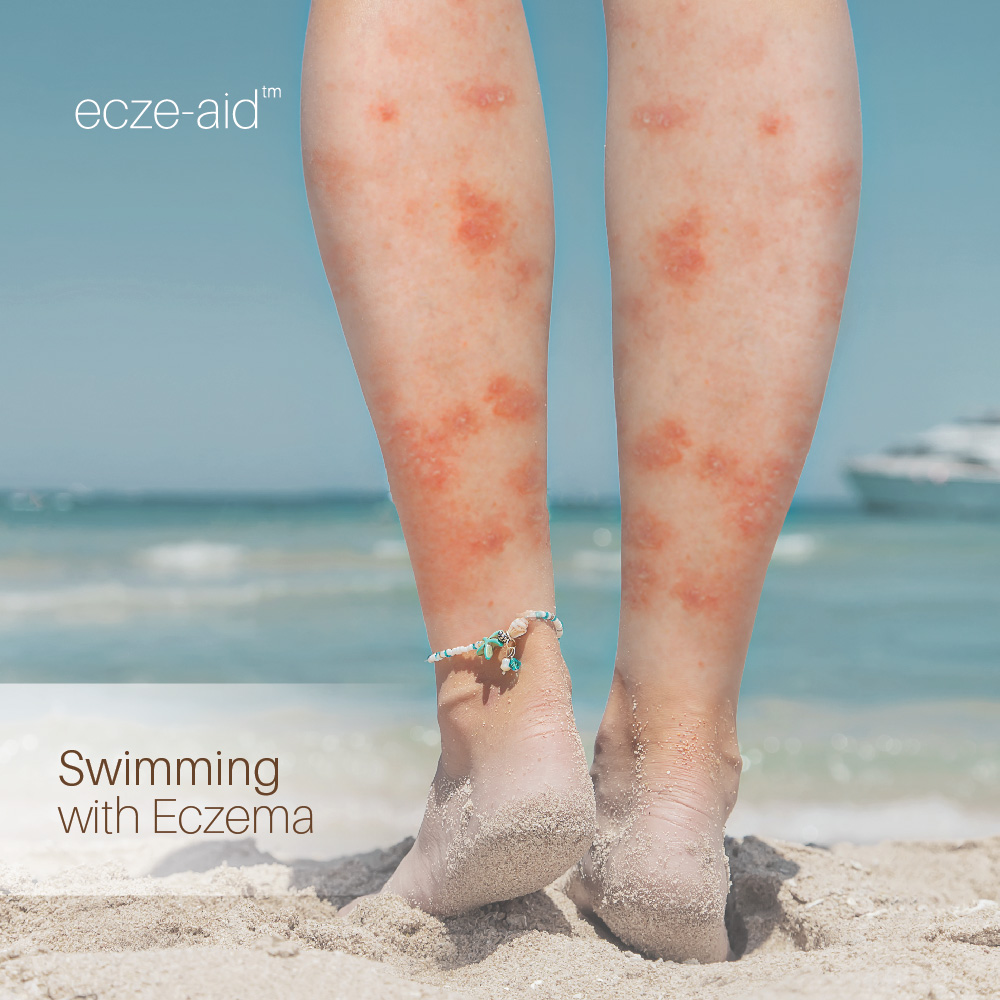Eczema flare-ups can be a nuisance to say the least. People suffering with the condition often think twice about doing certain activities. Here are five tips people with eczema should know before they go swimming.
Chlorine can help or hurt
Chlorine is the most common disinfectant that gets added to the water in swimming pools. It can be irritating to some eczema skin, but many find that swimming in a chlorinated pool has a soothing effect that’s similar to taking a bleach bath. If you’re in the former group, choose a fresh-water alternative. However, if chlorine sits well with you, enjoy your time in the pool.
Moisturizing is a must
Bring travel-sized containers of your favorite products with you to the beach, lake or poolside, said the health site. Apply a generous layer of cream or lightweight ointment about an hour before a swim.
Shower immediately afterwards and reapply a liberal amount of moisturizer within three minutes to offset the drying effects of swimming and showering.
Saltwater can soothe or irritate
The effects of saltwater on eczema skin can differ wildly from person to person. It can be soothing for some and painful for others. If you’re an experienced swimmer, you already know your body and its preferences, but if you’re new to the sport, trial and error is the only way to find out how your skin will react to saltwater. Just remember to rinse off and moisturize before and after swimming in any body of water, whether natural or human-made.
Post-swim shower
A hot shower or bath can be tempting after a vigorous swim. Your muscles may love that sensation, but if you have eczema, your skin probably won’t agree. Start with a lukewarm shower and gradually make it cooler.
Many people with moderate to severe eczema swear by bleach baths. The concentration of chlorine in a bleach bath is roughly equivalent to the amount in a chlorinated swimming pool, so you can get clean while getting an additional dose of chlorine’s anti-inflammatory and disinfectant properties.
If you’re sensitive to chlorine bleach, try an apple cider vinegar bath instead. Or try adding oatmeal, baking soda, bath oil or salt to your bathwater. While not universally effective, these variations on the bathing theme work well for some people with eczema.

